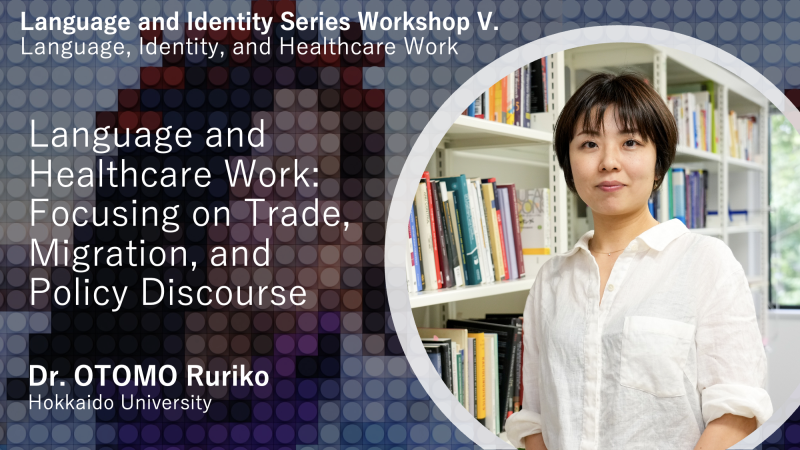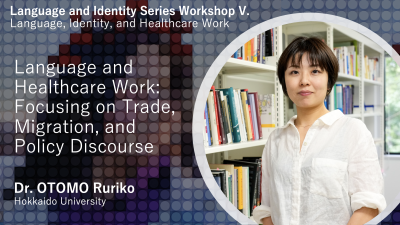Language and Healthcare Work: Focusing on Trade, Migration, and Policy Discourse (Lecture by Dr. OTOMO Ruriko)

| Date(s) | Wednesday, 21 June 2023, 9:00 am - 10:00 am (JST) |
|---|---|
| Venue |
Zoom Webinar (Register) |
| Registration | Pre-registration required |
| Language | English (with Japanese simultaneous interpretation) |
| Abstract |
In Japan and elsewhere, the major focus of language policy research has been language-in-education policies primarily because (language) education is one of the main vehicles for reproduction, be it social, economic, political, or symbolic. Recently, however, researchers have called for a renewed approach to language policing and for more attention to other forms of policies in which language, human communication and sociocultural issues get represented in the policy discourses. Resonating with these important calls in the field, my talk focuses on a free-trade policy as a form of language policy that requires serious scholarly attention. The free-trade policy in question is the Economic Partnership Agreement (EPA) singed between Japan and Indonesia, the Philippines and Vietnam respectively since 2008. It enables the Japanese side to manage the workforce mobility of migrant nurses and caregivers mainly by means of pre-employment (language) training and the Japanese-medium licensure examinations. By presenting part of her analysis of the language management devices and that of policy discourses surrounding the EPA, Dr. OTOMO Ruriko argues the EPA is expected to bring little fundamental change to Japan’s language policy in the near-term future. While the social ageing and the pressing need for (workforce) migration spell an abundance of opportunities for multilingual human encounters as well as ideological negotiation and shifts, the EPA is found to reinforce or capitalise on the existing “old” ideologies rather than to enhance multilingualism as well as social justice for the benefit of the migrant population. |
| Program |
Lecture: Q&A Moderator |
| Speaker Profile |
Ruriko Otomo is associate professor of Research Faculty of Media and Communication at Hokkaido University. She is a sociolinguist whose work has focused on language policy and planning in a larger context of Japan, but extends to issues that concern impacts of social transformations on language (both ideology and practice). Some of her recent contributions have appeared in Multilingua (Otomo, 2020) and Asian Studies Review (Otomo, 2022). She is currently completing a book for Springer about Japan’s language policy with regards to free-trade policy and transnational migration of healthcare workers. |
| Organized by | Tokyo College, the University of Tokyo |
| Contact | tokyo.college.event@tc.u-tokyo.ac.jp |














